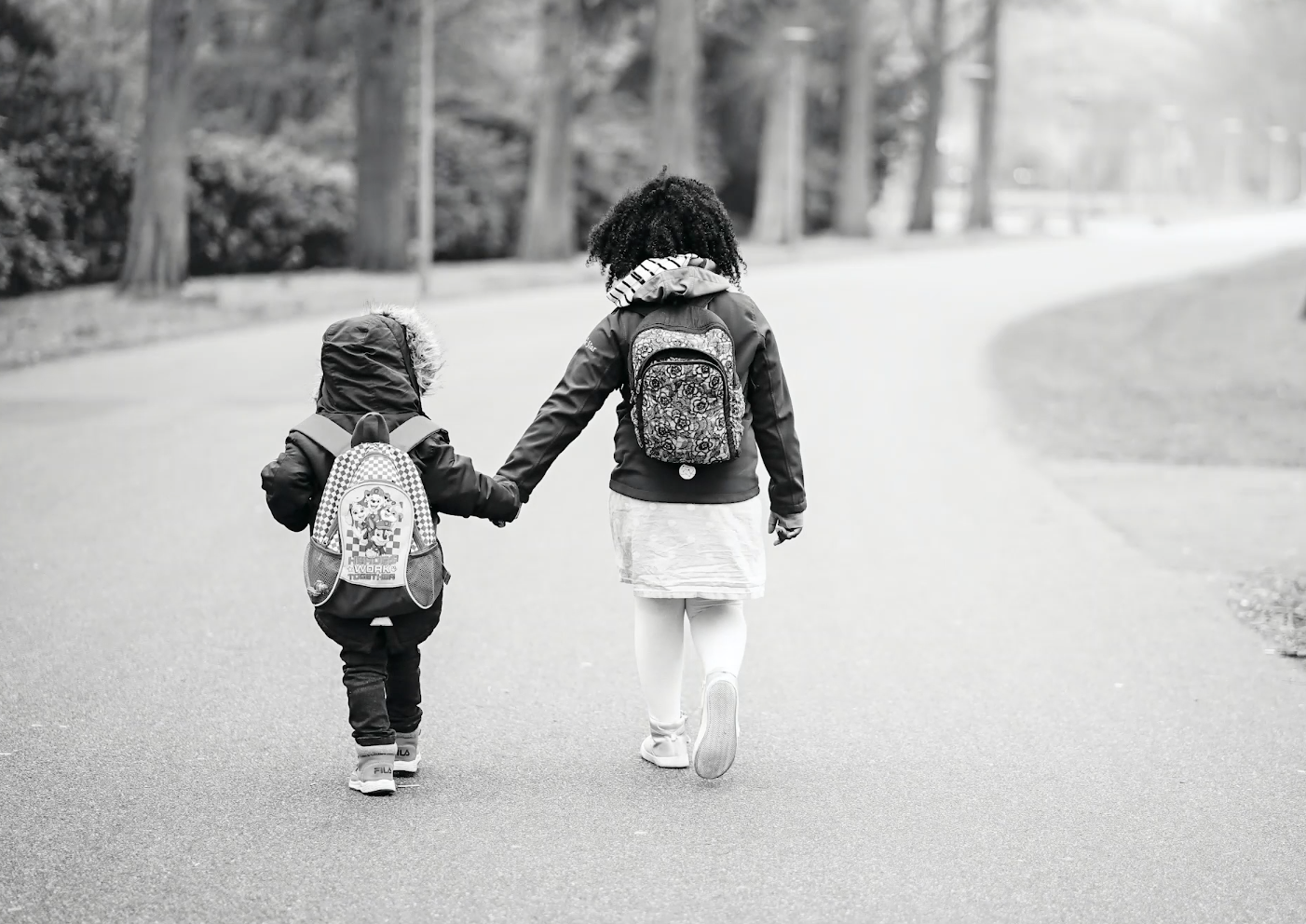

Any one of the groups that humans are often divided into based on physical traits regarded as common among people of shared ancestry”
- Merriam-Webster Dictionary
A belief that race is the primary determinant of human trainers and capacities and that racial differences produce an inherent superiority of a particular race”
- Merriam-Webster Dictionary
Pre-judging or making a decision about a person or a group of people without sufficient knowledge. Prejudice is often based on stereotypes. No one is free of prejudice.”
- Chinook Fund
Denial of opportunities, justice and fair/equal treatment. Granting advantages to one group while denying opportunities to another. Both individuals and institutions can discriminate in many areas including: education, housing, political rights. Discrimination can follow prejudicial thinking, or be “unintentional.”
- Chinook Fund
Personal, societal and institutional advantages, entitlements, benefits, responsibilities, assumptions, choices and positive expectations granted to a person based on one’s membership in a dominant group. These benefits are often bestowed unintentionally, unconsciously, automatically & often invisible to the receiver. They include things that may seem to be basic rights, but when others are denied them, they become privileges.”
- Chinook Fund
An oversimplified generalization about a person or group of people without regard for individual differences. Even seemingly “positive” stereotypes that link a person/group to a specific “positive” trait can have negative consequences.”
- Chinook Fund
Access to resources and institutions; the ability to exercise control, influence others & gain access to decision-makers to get what you want done.”
- Chinook Fund
The systematic subjugation of a social group by another social group with access to institutional or systemic power. Individuals belonging to the dominant group have access to privilege and benefit at the expense of individuals in the subordinate group. Oppression = Power + Prejudice”
- Chinook Fund
The involuntary acceptance of the stereotypes and false assumptions about oppressed groups made by dominant culture. Includes acceptance of a belief in the inherent inferiority of the oppressed group as well as in the inherent superiority of one’s own privileged group. Internalized superiority creates an unearned sense of entitlement in members of the privileged group, and can be expressed as a denial of the existence of oppression and as paternalism.”
- Chinook Fund
Adopting the values & characteristics of a dominant group, due to overt and subtle pressures of society that equates dominant characteristics with success.”
- Chinook Fund
The intersection where multiple forms of oppression come together. The experience of holding multiple oppressed or multiple dominant identities at the same time.”
- Chinook Fund
Cumulative emotional wounding across generations, which emanates from massive group trauma such as massacres, genocide, slavery, war and violence. Can include intergenerational transfer of traumatic responses.”
- Chinook Fund
Indirect, subtle, or unintended discrimination against members of a marginalized group”
- Lexico Dictionaries
Supportive association with the members of a marginalized or mistreated group to which one does not belong”
- Merriam-Webster Dictionary
The following common questions include both written and video responses.
Watch the videos to hear from Scilla Andreen, director/producer of Race to Be Human, and Jason Craig Harris, social impact producer for Race to Be Human.
Ideological, Institutional, Interpersonal, & Internalized
Come from a place of empathy and curiosity. Create a safe space for open dialogue and ask questions. Assume good intentions and lean into the discomfort. Be thoughtful about what you say and strive to be an active listener. Recognize your own preconceived ideas and implicit biases. Learn from people, not just about them. Reflect on your own experiences and feelings, while acknowledging and respecting those of others.
Create a safe space for dialogue, share your own reflections and questions, and find opportunities to learn together. Think about your own family background because it’s important to understand our own story so we can appreciate other peoples’ stories. Meet people where they are; everyone has a different starting point. Be open about your own experiences and feelings, while making space for others to share.
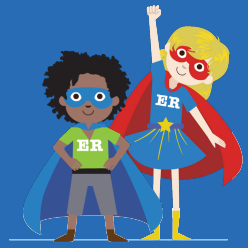
Start early. The earlier, the better. Age appropriate conversation starters for kids
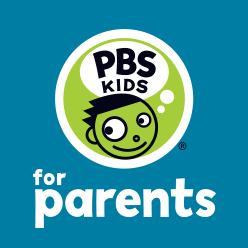
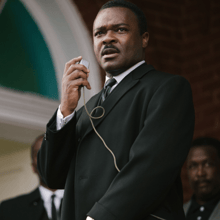
Ava Duvernay
https://www.selma101.org/
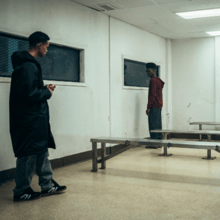
Ava Duvernay
https://www.wtsu101.org/
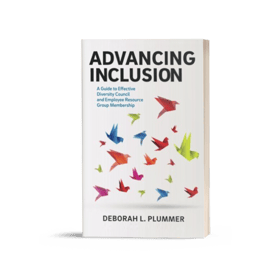
.png?width=261&height=260&name=Women-Book+(1).png)
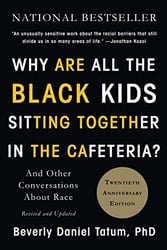
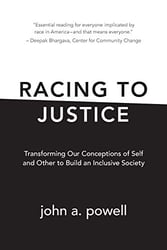
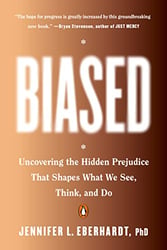
“Powerful film. From start to finish, this film had me thinking about myself, my students, my S.O, and my children. It had me thinking about the past, the present, and the future of society."
~Counselor from the American School Counselor Association
I wanted to make a film that addressed the confusion and apprehension we often feel when talking about race and racism. RACE to Be Human addresses commonly used terms and defines them through the lens of students, educators and mental health and DEIB professionals.”
~Scilla Andreen, Director of RACE to Be Human
“As someone who is mixed/bi-racial, this movie really made me feel represented. It was maybe the first time in my life where I heard other people talk about what it's like to “be in the middle '' and not really feel like you belong to any race (not black enough, not white enough, etc.) which can be very isolating in itself. Hearing mixed-race people share their feelings of guilt and their experiences with micro-aggressions was truly validating and it made me feel seen. Thank you.”
~Robbins Hebrew Academy
“This is a powerful film. It’s impossible to watch and not feel like you’re having a mirror held up in front of you. During and after filming, one necessarily reflects on the ways in which they are victims of racism or perpetrators…or even bystanders. This is an important tool for self-reflection when it comes to experience about race. I know I left wondering how I contribute negatively to a person of color’s experience through microaggressions. Even as adults we can be so unaware of our actions…even those that seem so well intentioned. I would encourage other schools to use this in their anti-racist pedagogical toolbox.”
~Brett Copeland (Principal)
“I think the movie was very educational and every school should watch it. During the movie, I found it very interesting how people were speaking their minds and I think a lot of people can learn from it. I believe that if everyone watches this movie and understands how others feel, we can begin to [rid] the world [of] racism.”
~Austin (Grade 6 Student)
“This movie put me in other people's shoes and made me acknowledge what they are going through. Feeling this made me aspire more to help people fighting against racism.”
~Anonymous (Grade 6 Student)
“I really liked the documentary. I liked it because, instead of just having one white person talking about everyone's stories, people of different races were telling their OWN stories.”
~Anonymous (Grade 6 Student)
“I think it was a great movie and it was very informative about racism and how people are subconsciously racist – it was that idea that stuck with me. We have to think more deeply.”
~Ruben (Grade 6 Student)
“I liked this movie because it was very interesting and shed some light on what I didn't know about different cultures and races. I think that all ages should watch this video to teach them about racism.”
~Sophie (Grade 6 Student)
“I found it very interesting. For example, the young girl didn’t like being called exotic because it made her feel different. I used to LOVE IT when people said I looked exotic BECAUSE it made me feel different. Two different reactions to the same phrase. As a white woman, I guess I didn’t appreciate how this would be experienced so negatively by a person of colour... Treating everyone equally starts at home. Parents MUST teach their children. The onus of planting the seed of understanding falls on parents. This film can help parents with those important conversations.”
~Lisi T. (Parent)
“An inspirational film that brought up very specific topics that are usually unspoken or are under the radar.”
~Gavriel L. (Grade 8 Student)
“I think people should watch this because it shows what people are experiencing whether it's because of their color or where they’re from. It is more understandable that you hear it from people who are actually experiencing these difficulties and not from people who are telling stories about other people”
~Anonymous (Student)
“What a compelling film. The impact of student voices is unlike any other and so impactful. Chunking the messages and reflections was a great idea to help viewers keep focused on the topic and discussion as well."
~Merve Lapus, Common Sense Media
Wow. What an incredible film...... Our Staff NEEDS to see this film. We need to actually use this film as a training piece along with our other DEIJ committee work.
~JM, Psychologist, Abu Dhabi
“Very eye opening, a must see!”
~School Counselor, American School Counselor Association
“I was sending messages to my fellow middle school counselors while watching and remarking on how we NEED this movie at our school, and it got me asking if we had students advising on our DEI team at our school. Can’t wait to have RACE to Be Human at our school. It would be a valuable addition to our education for staff and students alike.”
~School Counselor, American School Counselor Association
“I found it powerful and was able to fully connect with the message being expressed. Very informative and positive in a way I feel is non threatening. (Meaning I believe it is done in a way that can be shared with very rural districts with less diversity.) I am hoping to get our district to bring this program in as well as Jackson County, Michigan as we have been doing a good deal of focus on DEI & SJ.”
~School Counselor, American School Counselor Association
“The overall feeling of hope that was portrayed throughout the movie. The people speaking really did a fantastic job of telling their stories, which were at times heartbreaking and at the end sharing the messages of hope was very powerful.”
~Educator, American School Counselor Association
“RACE - Love in Action -Recognizing All Creation Equally.”
~School Counselor, American School Counselor Association
“All of it was great. It tied into a mini professional development that I am participating in on social justice and equity in the classroom. I particularly relate to using my privilege for advocacy, in the alyship chapter.”
~Educator, American School Counselor Association
“I enjoyed the film and think it will be a beneficial way to start necessary conversations that could be helpful in bringing people together.”
~School Counselor, American School Counselor Association
“Wow! I feel like I learned so much. Just hearing the young people's views and hearing their stories had a powerful impact on me.”
~School Counselor, American School Counselor Association
“I would hope that there will be a curriculum included when this film is shared in schools. This will be helpful for those that struggle with having these conversations.”
~Educator, American School Counselor Association
“This film included valuable and often not heard student perspectives. It highlighted what we can do to better support our students, especially our students of color.”
~School Counselor, American School Counselor Association
“Thank you for this wonderful and important movie. Recognizing all creation equally, love in action and relationships that are empathetic, vulnerable, curious and kind are important for everyone to be valued for who they are."
~School Counselor, American School Counselor Association
“The film was informative and fair. I thought it was good and a good way to start conversations in a respectful manner.”
~Educator, American School Counselor Association
“This film was so hopeful and helpful. As a person who identifies as white who continues to work on being a productive and positive ally, these interviews brought so much perspective and the resounding HOPE that was felt throughout was powerful.”
~School Counselor, American School Counselor Association
“I loved seeing hope in the interviews with so many young intellectuals. Very inspiring.”
~School Counselor, American School Counselor Association
“This is a great film. Every school counselor should see this to help develop relationships with students and understand their ethnicity.”
~School Counselor, American School Counselor Association
“I felt like it was a bit long to watch so much information in one sitting but probably good to watch in chapters.”
~Educator, International School Counselors Association
“Powerful film that will be a cornerstone piece as we all work together to learn and to grow together in our understanding of race and how it impacts all of us. Believe any/all materials you can include with the film will better equip educators and communities to use the film thoughtfully and responsibly to create understanding, to heal and to equip one another to know better, do better and love one another and to listen to each other's stories.”
~Educator, International School Counselors Association
“The four I's of oppression, microaggressions, the pyramid of hate, the need to be able to talk openly about racial identity and issues of bias and racism resonated with me most.”
~Educator, International School Counselors Association
“I like the way it's organised based on the topic and I can see how easy it would be to use it in classrooms. I think the film will be a great resource for educators. I really appreciate that it has been made. I think the film conveys the message very clearly for the targeted audience, which I'm assuming is American and British.”
~Educator, International School Counselors Association
“I really appreciated this film. I think it is needed and listening to young people telling their stories is so powerful. Bringing awareness is a first step. I look forward to seeing the accompanying materials that will support us in school settings as we work toward a more diverse, equitable and inclusive society where everyone is valued and treated with respect. Thank you so much for the role you are playing in this.”
~Educator, International School Counselors Association
“What I find difficult in school and outside for that matter to talk about racism, is that it affects us all but it is so difficult to have a conversation on that topic. I think there is a fear of being blamed or hurt (triggered) so it is being avoided. I wonder if we can have a similar approach to race conversations that we have to mental health issues, which have been also a taboo but in recent years (especially during the pandemic) became a more open topic to discuss.”
~School Counselor, International School Counselors Association
“I really like the fact that the film will be broken into chapters and have a platform attached for use as a part of the regular curriculum yearly.”
~Educator, International School Counselors Association
“This is a good film for a school that has not started, or is hesitant to start, the conversations about race and need a resource to broach the subject or a starting line for the conversation. It does not address the deep-rooted issues of racism, in my opinion, but I'm not sure any film really can. This is a massive topic and this film is a way to get the dialogues/conversations started. Thank you.”
~Educator, International School Counselors Association
“Excellent and powerful film calls attention to an American tradition that needs to end. Racism is entrenched in our society, this film is an effort to start the work of removing it from our culture. This film brings hope to a struggling nation. I would show this at every school in America from Middle School up.”
~Educator, International School Counselors Association
“Thank you for giving us the opportunity to preview this film. It's an incredibly important issue that should be addressed in schools. I like that it is broken into chapters so that it can be used as a discussion tool. I hope that the discussion guide includes "answers" or talking points to assist the person teaching it. It may even be helpful to include things that should definitely not be said as well as giving the correct terminology to use. Not everyone would be comfortable having these discussions and may feel like they don't know what to say or may say the wrong thing.”
~Educator, International School Counselors Association
“Thank you for making this film! It is so helpful for educators to have the tools to begin or continue this discussion.”
~Educator, International School Counselors Association
“The aspect about allyship. This was a film where it was almost too much to take in one dose (keep this though!). I just wish that I could watch it and have the ability to pause, reflect and then re-watch.”
~Educator, International School Counselors Association
“The voices of the students talking about how important it is to normalize talking about race, racism, stereotypes, microaggressions... all the terminology is so critical to understand, learn, know, experience. Giving a common shared experience through the film and then using each chapter to educate, discuss, share stories, listen, learn from each other and learn how to better love each other is why this film MUST BE SHARED widely.”
~Educator, International School Counselors Association
“It was nice to hear from the perspective of students some of the frustrating things that get said to them on a regular basis, and why it's not okay. It makes you think twice about the weight of words.”
~School Counselor, International School Counselors Association
“I liked the part about the Four I's of Oppression. I also liked the part that talked about shifts in our language that contribute to shifts in our consciousness; it changes how we see ourselves and others. I appreciated that the film did not shy away from addressing the N-word. Discussions about this word are much needed in schools, particularly because of its prolific use in pop culture.”
~Educator, International School Counselors Association
“I like the overall theme and focus of the film, and know that it's super helpful and important. I think we'd need to follow it up with some talking points, discussion, and asking specific questions related to the film.”
~Educator, International School Counselors Association
“I thoroughly enjoyed the film. This is a film that should be viewed in all schools. This film benefits everyone, administrators, parents, teachers, and students. I especially like that the film included young people and adult perspectives. This was honest dialogue with no hostility. This film was well done. Thank You.”
~Educator, International School Counselors Association
“The strongest part of the film for me was hearing high school kids of mixed backgrounds talk about what the situation is like for them. Also, the film helped me realize that the world is becoming more mixed. When I was growing up being bicultural was strange (my father is Greek and my mother American) but what I came to realize is that as travel and access grow, so does the mix of cultures. Hearing students talk about having 4 or 5 different cultural backgrounds made me think more about what it means to have that kind of background and having to deal with this mixture and the biases that superior vs inferior concepts about cultures pose on young people.”
~School Counselor, International School Counselors Association
“I would be interested in creating a workshop on race at our school for and with students and showing this film or parts of it to those who participate in the workshop. Our office does offer special workshops for middle and high school students on mindfulness, communication, leadership and other such topics. We have not included race but I think it is time to do so. Your film is very inspiring because it goes to the heart of the race problem!”
~Educator, International School Counselors Association
“Our community is a bit more homogenous in color so we don't understand subtle differences that were discussed and which I think are very important for educators and students to know about and understand. Having students talk about their feelings and what hurts them was particularly important and educational.”
~Educator, International School Counselors Association
“The film is helpful to understanding the ways in which racism impacts educational organizations. It unpacks and gives examples of key ways in which racism manifests itself in schools and the impact that racism has on individuals. I applaud the director for this important work on a crucial issue in our world today.”
~Educator, International School Counselors Association
“Several of the personal stories resonated deeply with me, simply as an empathetic person who is an advocate for children. We rarely get to see the personal harm that is caused by everyday racism. We have made it invisible and "divisive" to discuss. I don't think it can be overstated how important it is for white people in our white institutions to hear these personal stories and also for non-white people to hear their stories brought into the open, acknowledged and validated.”
~School Counselor, International School Counselors Association
“This film thoughtfully and beautifully brings to the forefront the voices of an incredible array of young people, as well as established experts, to talk about what so often goes undiscussed or is downplayed in their communities around the world. Simply by listening to their stories, their definitions, and their hopes and ideas for a different way for the world, it is a powerfully, moving film. It is educational in the most relational, narrative way, as well as providing expert background information. Loved it and felt that it would be incredibly useful in all schools for all members of the community, from administrators and school boards, to teachers and staff, to students and their parents/caregivers.”
~Educator, International School Counselors Association
“Thank you for the opportunity to contribute to such an important project that can potentially help children, young adults, and "people" heal the world. If I may, please consider allowing more time with the film. Students we teach will need it.”
~Educator, International School Counselors Association
EDUCATING ALL OF OUR CHILDREN: UNDERSTANDING AND ADDRESSING IMPLICIT BIAS
Perception Institute
HIS STORY: SHIFTING NARRATIVES FOR BOYS AND MEN OF COLOR
Perception Institute
THE SCIENCE OF EQUALITY IN EDUCATION: THE IMPACT OF IMPLICIT BIAS, RACIAL ANXIETY, AND STEREOTYPE THREAT ON STUDENT OUTCOMES
Perception Institute
THE SCIENCE OF EQUALITY, VOLUME 2: THE EFFECTS OF GENDER ROLES, IMPLICIT BIAS, AND STEREOTYPE THREAT ON THE LIVES OF WOMEN AND GIRLS
Perception Institute
OUR BRAINS & DIFFERENCE: IMPLICIT BIAS, RACIAL ANXIETY, AND STEREOTYPE THREAT IN EDUCATION
Perception Institute
THE SCIENCE OF EQUALITY, VOLUME 1: ADDRESSING IMPLICIT BIAS, RACIAL ANXIETY, AND STEREOTYPE THREAT IN EDUCATION AND HEALTH CARE
Perception Institute
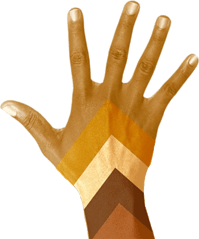

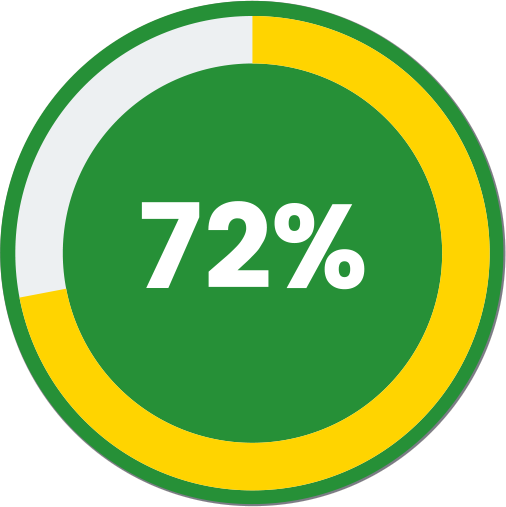
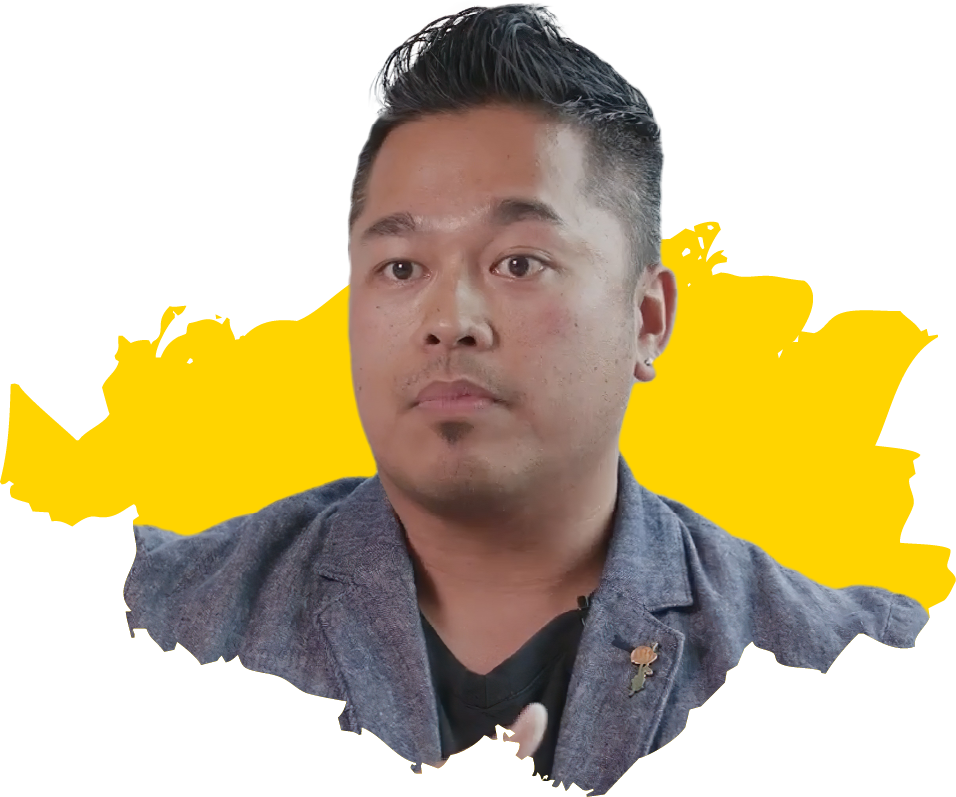
"What a compelling film. The impact of student voices is unlike any other and so impactful. Chunking the messages and reflections was a great idea to help viewers keep focused on the topic and discussion as well."
-Merve Lapus, Common Sense Education
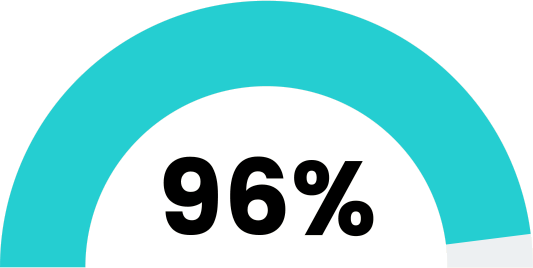
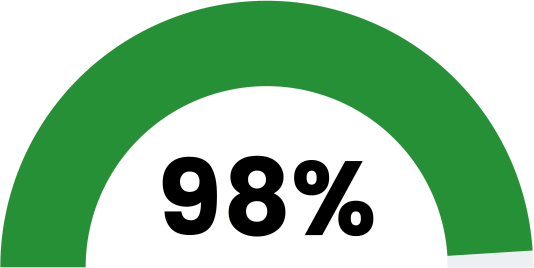
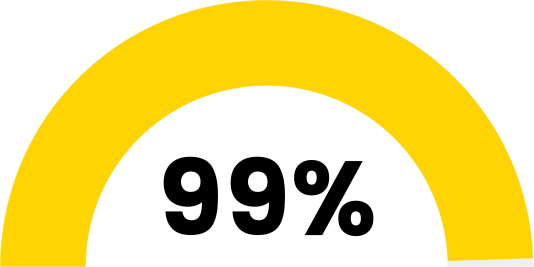

25% of responses were BIPOC/AAPI, and 75% of responses were White.
85% of educators identified as female, 12% were male, and 2% were non-binary or preferred not to say.
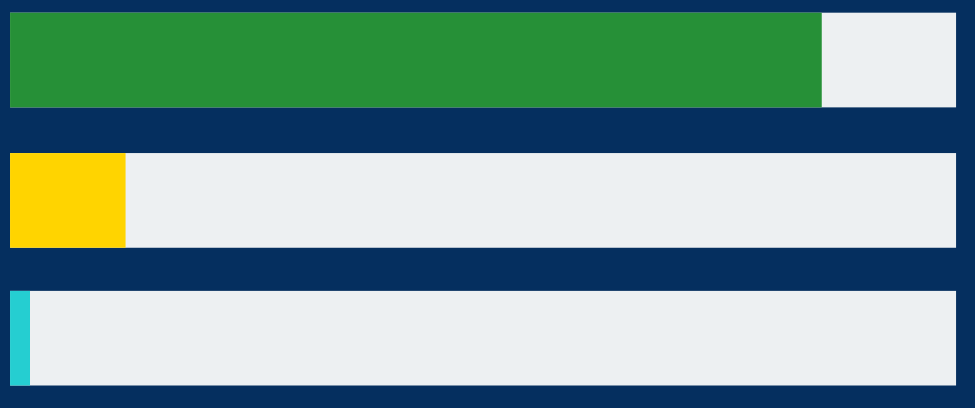
Our goal is to reimagine learning, normalize mental health, and guide both individuals and communities to become more reflective and resilient.